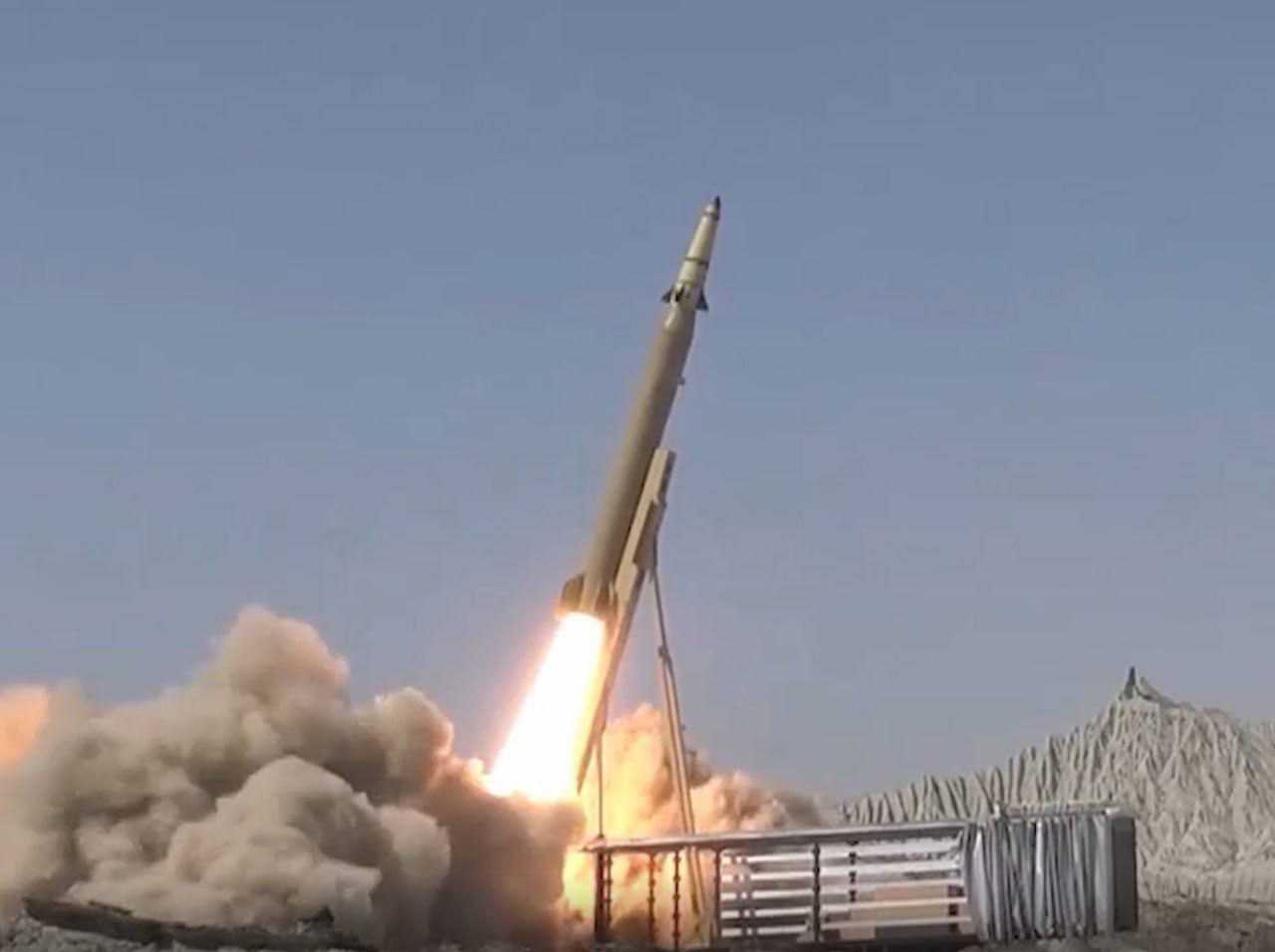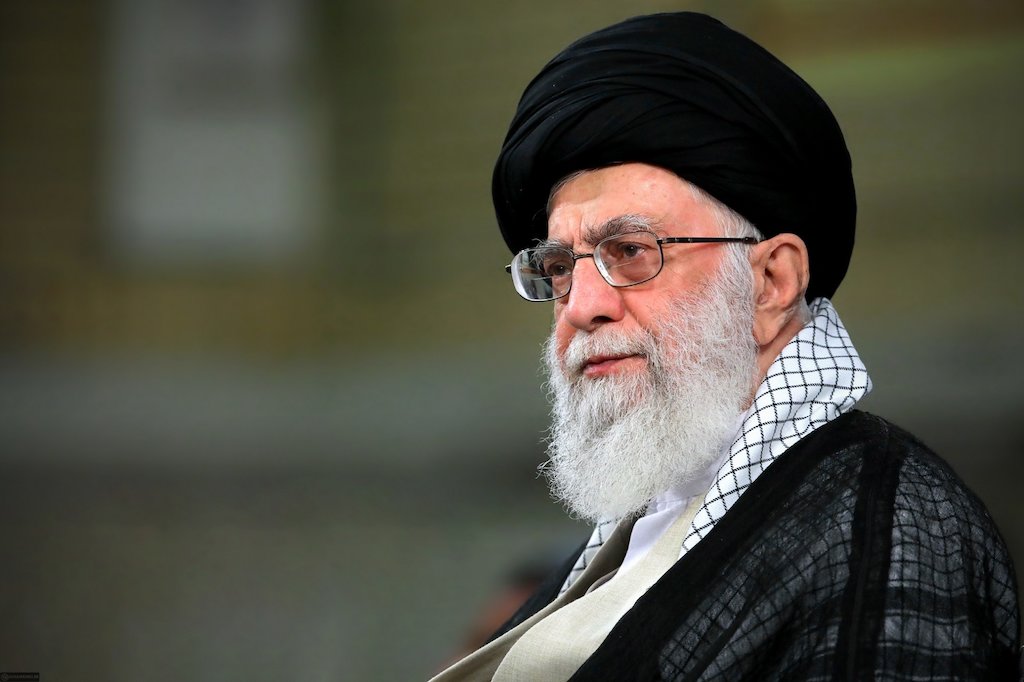Date

Economic sanctions imposed on Iran and other countries by the United States put the dollar’s dominance at risk as targeted nations seek out an alternative, Treasury Secretary Janet Yellen says. But she then played down the likelihood of danger to the dollar.
“There is a risk when we use financial sanctions that are linked to the role of the dollar that over time it could undermine the hegemony of the dollar,” Yellen said on CNN April 16.
“Of course, it does create a desire on the part of China, of Russia, of Iran to find an alternative,” she told the network’s Fareed Zakaria in an interview.
But she said it wouldn’t be easy for those countries to kill off the dollar as they say they wish. “The dollar is used as a global currency for reasons that are not easy for other countries to find an alternative with the same properties,” Yellen said.
Iran likes to say other countries rely on the dollar because they are forced to do so by the United States. But actually, they do so because it is to their benefit to do so. China, in fact, owns a trillion dollars of US Treasury bonds, more than any other country but Japan. And the Islamic Republic once bought about $1.75 billion in US Treasury bonds. That blew up in the regime’s face when the US discovered the purchase and froze the bonds.
The robust US capital markets and rule of law “are essential in a currency that is going to be used globally for transactions,” Yellen said. “And we haven’t seen any other country that has the basic … institutional infrastructure that would enable its currency to serve the world like this.” The Chinese yuan doesn’t fill the bill because Beijing decrees its exchange price and doesn’t allow the market to determine its value.
Yellen said sanctions are an “extremely important tool,” all the more so when used by the United States and its allies as “a coalition of partners acting together to impose these sanctions.”
Three weeks earlier, Yellen said US sanctions on Iran have not had as much of an effect as hoped for and the US needs to turn to other tools to throttle the Islamic Republic in order to convince it to change its policies.
Testifying before the House Appropriations Committee March 23, Yellen told lawmakers the US has leveled “the toughest possible sanctions on Iran” and undertaken ongoing efforts to strengthen them, creating a “real economic crisis in the country.” But, she continued, those punishing conditions have not fully deterred the regime in Tehran.
“Iran is suffering greatly economically, because of the sanctions. I would say the same thing is true of North Korea,” she said. “On the other hand, if you were to ask, ‘Has that forced a change in behavior?’ The answer is much less than we would, ideally, like.”
“Sometimes a regime is so committed to a program, that even when the population of that country is suffering immensely because of sanctions we’ve imposed, they continue to prioritize activities that are the ones we’re trying to stop,” she explained.
Yellen said the Treasury Department needs to turn to “a broader tool kit” to discourage the Iranian regime from continuing its nuclear and expansive policies.
“Sanctions can play a role in changing behavior but they may not be sufficient,” she said.
She did not say what new initiatives might be used, but more people have been saying in recent months that military action of some sort might be required to get Tehran’s attention.
The Trump Administration turned to a “maximum-pressure” sanctions campaign against Iran in 2018 after pulling out of the 2015 Joint Comprehensive Plan of Action. Despite those sanctions, Iran’s nuclear development and malign activities have continued and, in some cases, increased.
Some conservatives have accused the Biden Administration of failing to fully enforce the sanctions in an effort to re-start the nuclear deal. But the administration has insisted it continues to enforce the maximum pressure regime and notes that it has leveled additional sanctions.
A few days before Yellen testified, satellite photos showed an oil tanker owned by a major US-traded firm appearing to be taking on Iranian oil on the high seas from a tanker that had loaded Iranian crude earlier at Iran’s Bandar Mahshahr oil terminal.
For more than a decade, the Islamic Republic has been touting the need to skewer the dollar and insists it has been cutting its dependence on US currency. But while it is using the dollar less, it has still not ended its use of the dollar or come anywhere near doing so.
Recently, it has been touting a new agreement with Russia to conduct trade in the ruble and rial as a major blow to dollar dominance. But, first of all, Iran-Russia trade is insignificant so conducting bilateral trade without the dollar is no blow to the dollar. Secondly, the United States is trying to enforce rules forbidding Iran and Russia from using the dollar, so their agreement not to use the dollar simply adopts US policy and is no blow to the dollar.
Interestingly former President Donald Trump has adopted Iranian rhetoric on the dollar. In a speech given April 14, Trump said, “Our currency is crashing and will soon no longer be the world’s standard, which will be our greatest defeat in 200 years.” It would be hard to find any professional economist who agrees with him.
The ruble and rial are such minor currencies that neither poses any threat. China’s yuan is another matter, because of the size of the Chinese economy. But no other country has adopted the yuan while a couple of dozen countries have adopted the dollar or euro as their own currency. More importantly, economists say, the yuan is worth what the Chinese Communist Patry says it is worth, and no country wants to be under the Chinese Communist Party’s thumb. The dollar, on the other hand, is worth what the market says.

























